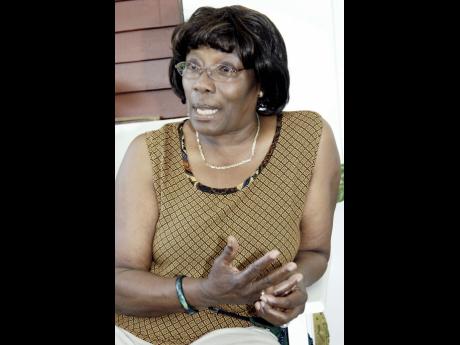Parents: The weakest link - Children diagnosed with development challenges not being taken for the help they need
The reluctance of some parents to seek help for their toddlers diagnosed with developmental challenges is a serious concern for one special-needs educator who fears that these children are not getting the help needed to better transition into primary schools.
Acting director of the Voluntary Organisation for the Upliftment of Children (VOUCH) and special-needs educator, Dr Polly Bowes-Howell, noted that while help is available for these children, the negligence displayed by some of the parents could mar their children’s development.
VOUCH was designated a centre for the assessment of children with special needs three years ago, and since then, several children have been referred for further assessment and treatment based on the findings.
“What we found is that last year when we screened towards the end, like ... June, the parents did not take the letters of referral. We had one child who had to get immediate surgery at Children’s (Bustamante Hospital for Children) and we had to push, so the child could go in, do the surgery in readiness for September,” said Bowes-Howell.
“When we give them those letters of referrals, even for Bustamante, they don’t go,” she added.
SPECIALISED TEST
According to Bowes-Howell, some of the students were given multiple referrals, in some cases up to three. The centre offers vision screening, hearing test and a specialised development test for those students who are transitioning into primary school.
The latest screenings were done a few weeks ago with 33 children assessed.
“These are tests to show the teacher and get the parents to understand that something is not right, so depending on the level of severity from the team, they will refer that more tests be done. What we do here is just the screening.
“The parental side is my weakest link down here,” said Bowes-Howell, as she argued that environmental factors could be contributing to some of the challenges the children are experiencing.
GRADE ONE INVENTORY TEST
While the VOUCH facility primarily focuses on testing five-year-olds who are about to enter primary school, the special-needs educator said that some of the children with special needs were identified from as early as two years old.
Several of them were referred to the Early Stimulation Programme in Kingston for further intervention.
Bowes-Howell, who served as chairperson for the Special Needs Commission of the Jamaica Teachers’ Association, said VOUCH received sponsorship to start assessing children because a number of them were failing the grade one inventory test and were being denied admission to primary schools.
She said this was not unique to the central Kingston area where VOUCH operates, as a study she conducted in 2011 in other sections of Kingston found that 48 per cent of the students transitioning into primary schools were not ready.
“Based on my studies, we found that the medical model was not being addressed and so the recommendation was that every child coming to the school should do a medical,” said Bowes-Howell.

